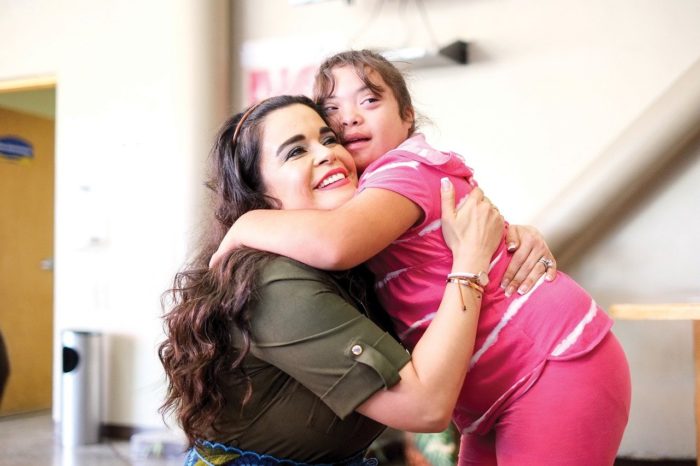Have you always wanted a rewarding job; one that can actually make a difference in other people’s lives? Love the idea of working with kids and having summers off?
If so, becoming a teacher may be the ideal career for you!
But now the real question is, what type of degree do you need to become a teacher? And that’s where things get slightly confusing, because unlike other careers, teaching does not come with a set career path. There are actually different routes you can take to become a teacher, and these routes are based on your ultimate goals.
In this article, I’ll break down everything you need to know to become a teacher so you can confidently choose the right degree and have your dream career.
Ready to get started? Class now in session!
Types of Teaching Degrees
Recommended Schools
Associate Degrees in Education
Generally speaking, you’ll need at least a bachelor’s degree to earn your teaching license to get inside a classroom and begin teaching. While associate degrees in education won’t typically result in teaching K-12 classes, they can help you get your foot in the door.
For instance, an associate degree can lead to a career as a paraprofessional. This is a credentialed position where you will support student needs under the supervision of a licensed teacher.
In some states, an associate degree is all that is needed to work in career and technical education (CTE), provided you also have a few years of on-the-job training.
So, if a obtaining a bachelor’s degree right now is cost-prohibitive, an associate degree is a great way to get your foot in the door. You’ll also be able to transfer credits at a later date to earn your bachelor’s, should you so choose.
And if you want to learn how you can potentially save THOUSANDS of dollars toward your bachelor’s degree, be sure to read this entire article because I’m going to share some insider secrets that have helped students earn their degree easier, faster and cheaper than they ever thought possible!
Bachelor’s Degrees in Education
As previously mentioned, four-year bachelor’s degrees in education are typically the minimum required teaching degree to earn state licensure. This means when you graduate, you will be able to get your license and begin looking for a job immediately.
Your 4-year degree will not only educate you in general education coursework, but programs will also focus on the subject you plan to teach. So, if you want to become a 4th grade history teacher, your coursework will focus heavily on history.
Bachelor’s degree programs also usually consist of both classroom and practical experience in a local classroom. The classroom portion of your degree can be taken either online or in a physical classroom. For adult students, online bachelor’s degrees in education can be a great option because you can study when and where is most convenient for you. You will still be able to get hands-on experience in a local classroom in your community.
Master’s Degrees in Education
Some teachers, after spending a few years in the classroom, decide they want to go back to school to earn their master’s in education degree. With this type of degree, teachers are able to transition into school administration, becoming administrators, principles and even super intendents.
Master’s degrees will usually tack on another two to three years of study and focus heavily on subject-area content (English, history, etc.). And the great news is many master’s programs are now offered almost exclusively online to accommodate working teachers and those looking for a career change.
Now you may be wondering if the added time and cost of earning a master’s degree in education is really worth it. According to recent data from the Bureau of Labor Statistics (BLS), high school teachers in the United States with a master’s degree earned more than $102,130.
Are you shocked that teachers can earn a six-figure salary? Well, they can with higher education. While a master’s degree may be in your future, most employers will want you to have some classroom experience before getting your master’s, so best to focus on getting your bachelor’s degree right now so you can get in a classroom.
Doctoral Degrees in Education
Is your ultimate goal to teach at the college level or work in college administration, particularly as a superintendent? Do you hope to one day be a major voice in enacting new educational policy? If so, you’ll want to obtain a doctorate degree.
A majority of doctoral programs require a master’s degree before enrolling, however, there are some programs that only require a bachelor’s degree. While this degree will result in another pay bump, that usually only happens at the collegiate level. Keep this in mind if your heart is set on a career as a K-12 teacher. In this scenario, the return on investment (time and money necessary to earn a doctorate degree in education) will be on the small side.
What Types of Courses Will You Take?
Getting any degree in education is a fun experience, particularly if you love learning! Some courses will be general in nature that all prospective teachers, regardless of area of focus or age of student, will take. Other courses, though, will focus heavily on the specific type of teacher you desire to be.
Recommended Schools
General Education Courses
To start, all teachers will take general education courses that will help them learn important skills like classroom management, lesson planning, and how to meaningfully engage with students. You’ll also dive a bit deeper and learn interesting topics like education theory and educational philosophy.
Perhaps the coolest thing about these general introductory courses is you’ll have the opportunity to think about what YOU think is the most important thing about teaching kids and how YOU think kids can best learn. You’ll then take these thoughts and develop and write your own personal philosophy of education. This philosophy will not only help to guide the rest of your academic career, but many schools will require you to submit your philosophy along with your resume come job hunting.
Early Education Courses
Do you have a particular fondness for young children? A Bachelors Degree in early childhood education teachers are instrumental in helping shape young students’ minds.
These particular courses will focus heavily on understanding how very young children develop and learn. You’ll learn how young brains develop and how you, as their teacher, can help them develop. You’ll also learn about the importance of learning through play.
Elementary Education Courses
Elementary school teachers help older students develop learning and socialization skills they’ll take with them throughout the rest of their school years and even into adulthood! Should your goal be to work in elementary education, you learn how to teach children reading as well as how to help them develop basic math skills. You’ll also guide kids in working together on school projects.
Middle School and Secondary Education Courses
When students hit middle school and high school, a lot more knowledge and expectations are thrown at them. Subjects begin to dive deeper, and because of this, teachers must be subject experts.
Should you have your heart set on teaching middle school or high school students, you’ll need to choose the subject you’d like to teach. There are also certain instances where you may need to specialize in a particular area. For instance, as a middle school teacher, it may be possible for you to major in general science, but as a high school teacher, you will most likely need a focused degree in biology or chemistry.
Special Education Courses
If you hope to go into special education, you will be required to take a specific set of classes. Special needs children have very defined needs, and special ed. teachers must fully understand how to best meet them.
Teachers hoping to go into this field have a couple of different career path options. You may choose to focus on teaching groups of students with a range of special needs, or you may decide to specialize in a specific type of need, such as ADHD, autism, or dyslexia.
How to Choose the Best Teaching Program
Now that you have a better idea of the different career paths available to you and the range of degrees and courses you may take, it’s time to talk a little about how to find the best program to help you reach your goals.
In my experience, having helped countless adult learners head back to school to earn their degree, there are 5 things you should absolutely look for in a degree program:
- Make Sure It’s Accredited
Be certain that the program you are considering has been accredited by your state and will meet state licensure requirements.
- Choose an Online Education Degree
Working adults don’t have the time to give to on-campus coursework. Do you really want to take night or weekend classes at your local community college and miss your kids’ soccer game or band recital?
Online degrees make life much easier for working adults with family obligations. You can study when it’s most convenient for you and entirely at your own pace.
- Go for Adult-Friendly Schools
More and more adults are heading back to college with the goal of advancing or even entirely changing their career. With this influx of new students, some schools are tailoring their offerings for adults.
For instance, some schools have open enrollment, which means you can logon to your computer at 2:31 pm on a Wednesday of any month and enroll in one of their degree programs. Compare this to traditional college enrollment, where schools have a very narrow window of time they accept enrollment packages.
Adult-friendly schools also typically offer robust tech help to older students who are taking online classes.
- Make Sure Books are Included in the Cost of Tuition!
Have you seen the cost of instructional books these days? You almost have to take out a student loan just to be able to afford them. Make sure the degree program you enroll in includes cost of books in their tuition, so you don’t experience any nasty financial surprises.
- Look for Tuition Discounts
Many students think the only way they can get some help paying for college is by applying for grants. This is actually the WORST way to try and save money on college. For the amount of time and effort you’ll spend applying for grants, you’ll have a very small chance of actually being awarded a grant.
A MUCH better way to save on the cost of tuition is to look for schools that offer upfront tuition discounts. With these discounts, you can usually save between 5% and 25% on the overall cost of your tuition.
Recommended Schools
BONUS STRATEGY
Look for schools that will take the credits you’ve earned completely for free!
OnlineDegree.com offers many FREE credits that can be applied to the degree program of your choosing. Even better, we’ll connect you with those schools that will gladly accept these credits, thereby saving you time and money toward your degree.
And when you sign up with OnlineDegree.com – which is 100% FREE to do by the way – we can also help you find schools that are adult-friendly, offer online programs, include books in their tuition costs and are accredited. Our goal is to make things as simple and affordable as possible for adult students, so sign up and get started now.
What Happens After Graduation?
Once you’ve earned your bachelor’s degree in education, you’ll next need to become licensed. Every state has a different set of requirements for teacher licensure. Be sure to check to see the exact requirements that apply to you.
If you plan on moving out of state in the near future, then be sure to check out that state’s requirements as well. Some states accept licenses from other states – some don’t. It’s really just a case of thinking, planning ahead and doing your due diligence.
Getting Your First Teaching Job!
You’ve got degree and license in hand, now it’s time to start applying for jobs. This can be an exciting but very nerve-wracking time.
Be sure your resume and philosophy of education have been refined and are ready to go. You may find that some schools are reluctant to hire first-year teachers, but don’t get discouraged. Keep applying and most importantly, always let your passion and desire to help children succeed shine! Ultimately, these are what will help you gain attention and find the school that is the right fit for you.
OnlineDegree.com Gets an A+ on Helping You Save!
If you’re starting to get excited about the idea of becoming a teacher, that’s awesome! We personally think teachers are some of the most important people in our society, and we’d love to help you get started on your amazing career path.
Our platform is 100% FREE for you to use. Once you sign up, you’ll gain access to our Smartplan that will help you find schools that offer:
- FREE courses you can take for credit
- Available tuition discounts
- Schools that are “adult friendly” and offer flexible enrollments and course schedules
- Schools that don’t require SAT or ACT scores
- And much more!
It takes just a few minutes to sign up and get started.
We want to help everyone reach their career goals, so head on over to our signup page and get started today!
Recommended Schools
Related Articles
-
How to Be Successful in College in 2022 – 7 Simple Tips to Succeed
-
How Do Scholarships Work? Read This First…Truth is Shocking
-
7 Best College Majors 2024: What Should I Major In?
-
How to Choose a College – 10 Things You Must Consider in 2024
-
Why Go to College? Top 13 Benefits for Adult Students in 2022
-
Top 5 Best Alternatives to Community College for 2024











